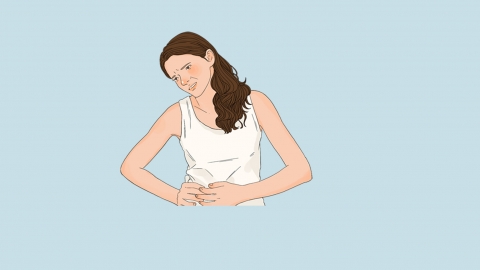Why does eating apricots cause diarrhea?
Diarrhea refers to loose or watery stools. Generally, diarrhea caused by eating apricots may be due to excessive consumption, under-ripeness of the apricot, food allergy, indigestion, or gastroenteritis. Symptomatic treatment such as general care or medication may be needed. If discomfort occurs, it is recommended to seek medical attention promptly and undergo appropriate treatment under a doctor's guidance. Detailed explanations are as follows:

1. Excessive Consumption
Apricots contain high levels of fruit acid, and consuming too many at once may cause excessive secretion of gastric acid, which can irritate the gastrointestinal tract and lead to diarrhea, possibly accompanied by stomach discomfort, nausea, and other symptoms. It is recommended to moderate the amount consumed and avoid overeating, as no special treatment is usually required.
2. Under-Ripeness of Apricots
Unripe apricots contain high levels of tannic acid and other irritating substances. Consumption may irritate the gastrointestinal tract, accelerate gastrointestinal motility, and trigger diarrhea, possibly accompanied by abdominal pain and bloating. It is recommended to consume apricots that are adequately ripe and avoid eating unripe ones.
3. Food Allergy
Allergy to proteins or pectin in apricots may occur when the immune system mistakenly identifies harmless food components as harmful, releasing large amounts of histamine and other chemicals that accelerate intestinal motility, causing diarrhea, possibly accompanied by abdominal pain, rash, and other symptoms. It is recommended to avoid eating apricots or any known allergens and to take medications such as cetirizine hydrochloride tablets, loratadine tablets, or promethazine hydrochloride tablets under a doctor's guidance.
4. Indigestion
Apricots are rich in dietary fiber, which may be difficult to fully digest and absorb in the small intestine. Upon entering the large intestine, it is fermented by intestinal flora, producing gas that stimulates intestinal motility and causes diarrhea, possibly accompanied by bloating and increased flatulence. It is recommended to take medications such as Bahe Pills, Jianwei Xiaoshi Tablets (digestive tablets), or Simo Tang Oral Liquid under medical guidance to relieve symptoms.
5. Gastroenteritis
Apricots that are not thoroughly washed or improperly stored may carry bacteria, viruses, or parasites. Once pathogens enter the digestive tract, they multiply and produce toxins that irritate the intestinal mucosa, leading to inflammatory reactions and diarrhea, possibly accompanied by fever and abdominal pain. It is recommended to take medications such as amoxicillin tablets, esomeprazole magnesium enteric-coated tablets, or rabeprazole sodium enteric-coated tablets under a doctor's guidance.
It is recommended to ensure apricots are fresh and thoroughly washed before consumption, and to control portion sizes to avoid overconsumption and subsequent physical discomfort.




